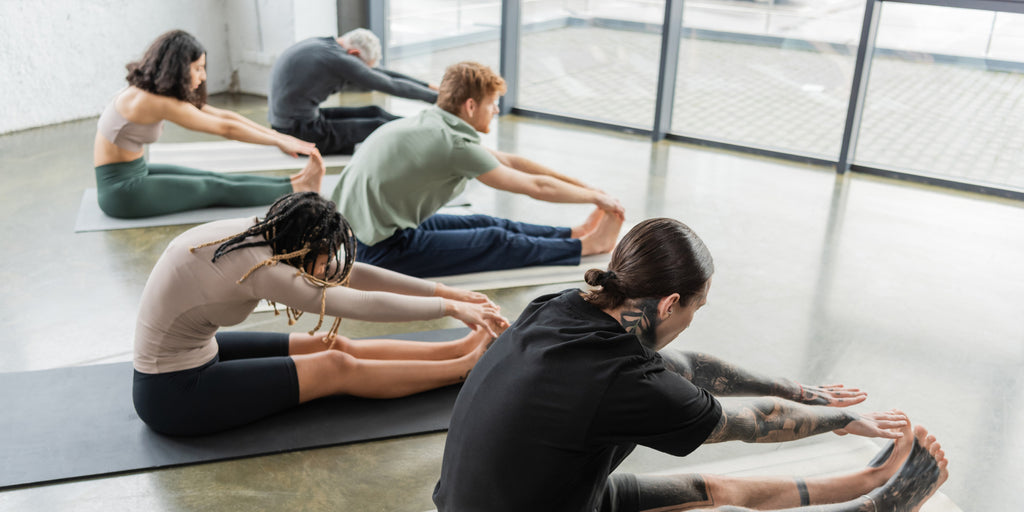Unwind Your Mind: Kicking Off Stress Awareness Month with Mindful Practices

Stay tuned to our latest news
April is recognized as Stress Awareness Month, a time to prioritize our mental and emotional well-being. As we usher in the month, it’s an opportune time to pause and reflect on the importance of mental health and the effective strategies we have at our disposal to combat stress. Among these strategies, mindfulness stands out as a beacon of hope, a practice that invites us to slow down and immerse ourselves in the present moment.
Mindfulness is not merely a technique; it’s a way of living, a gentle but powerful approach to life that teaches us to cultivate awareness and acceptance of our thoughts and feelings without judgment. By embracing mindfulness, we learn to navigate the complexities of life with grace and resilience, turning our attention to the richness of experiences that each moment offers.
The journey towards a stress-free life begins with a single step — a mindful breath, a conscious observation, a deliberate pause. Let us explore the transformative power of mindfulness — a tool that not only helps us manage stress but also enhances our overall well-being, allowing us to lead more fulfilling lives.
Why We Need to Address Stress

Whether it's work-related pressures, personal relationships, or simply the demands of a busy schedule, we all experience stress at some point. However, it is crucial to address and manage stress effectively to ensure our overall well-being and mental health.
Stress, if left unaddressed, can have detrimental effects on our physical and mental health. It can lead to a wide range of issues such as anxiety, depression, sleep disorders, and even chronic illnesses. Moreover, constantly living in a state of stress can impair our ability to perform well in various areas of life, affecting our productivity and relationships.
One effective approach to managing stress is through mindfulness. Mindfulness is the practice of being fully present in the current moment, without judgment or attachment to the thoughts and emotions that arise. It involves bringing awareness to our thoughts, feelings, and physical sensations, allowing us to observe them without getting caught up in them - in turn, letting go of stress.
By practicing mindfulness, we can develop a greater sense of self-awareness, enabling us to recognize and respond to stress triggers more effectively. Rather than reacting impulsively to stressful situations, mindfulness helps us develop a calmer and more thoughtful approach, reducing the negative impact stress has on our emotional and physical well-being.
Mindfulness also allows us to cultivate a more positive mindset and outlook on life. It encourages us to focus on the present moment and appreciate the simple joys and blessings that surround us. This shift in perspective helps us develop resilience, enabling us to bounce back from stressful situations more easily and maintain a balanced state of mind.
Incorporating mindfulness into our daily lives doesn't require a significant time commitment. Simple practices like deep breathing exercises, meditation, or even taking a few moments to consciously observe our surroundings can make a significant difference in managing stress. Regular practice allows us to build a "mindfulness muscle" that grows stronger over time, making it easier to apply in challenging situations.
Addressing stress through mindfulness is not about eliminating stress entirely from our lives. It is about developing a healthier relationship with stress and learning to navigate its challenges with grace and resilience. By managing stress effectively, we not only improve our own well-being but also enhance our capacity to handle the inevitable ups and downs of life.
Benefits of Mindfulness Practices

Mindfulness practices, such as meditation and deep breathing, are becoming increasingly popular as effective tools for managing stress. Finding ways to alleviate stress and regain balance is essential for maintaining good mental and physical health. The benefits of incorporating mindfulness practices into one's daily routine are numerous and far-reaching.
First and foremost, mindfulness cultivates a heightened sense of self-awareness. By engaging in mindful activities, individuals learn to observe their thoughts, emotions, and bodily sensations without judgment. This self-awareness enables them to recognize stress triggers and manage them more effectively. Rather than getting caught up in the whirlwind of negative thoughts and anxieties, one can approach them with a calm and detached perspective, reducing their impact on overall well-being.
Additionally, mindfulness practices have been shown to decrease stress levels by activating the body's relaxation response. When stress is perceived, the body goes into the fight-or-flight mode, releasing stress hormones that can wreak havoc on various bodily systems. Mindfulness interrupts this cycle by inducing a state of deep relaxation, lowering heart rate, blood pressure, and muscle tension. The regular practice of mindfulness helps individuals develop resilience and become more resistant to the harmful effects of stress.
Furthermore, mindfulness promotes mental clarity and improved cognitive function. When the mind is cluttered with stress and anxiety, it becomes challenging to focus and make rational decisions. By training the mind to stay present and focused on the present moment, individuals can enhance their ability to concentrate and improve overall cognitive performance.
Another significant benefit of mindfulness practices is their impact on emotional well-being. Mindfulness helps individuals distance themselves from negative emotions and develop a more positive outlook on life. By confronting negative thoughts without attachment, one can gain perspective and cultivate a more compassionate and forgiving attitude towards oneself and others. This shift in mindset leads to a greater sense of emotional balance, resilience, and overall well-being.
Mindfulness-Based Stress Reduction (MBSR)

Mindfulness-Based Stress Reduction (MBSR) has emerged as a powerful tool for managing stress and improving overall well-being. Developed by Jon Kabat-Zinn in the late 1970s, MBSR combines elements of mindfulness meditation, gentle stretching, and practical techniques to help individuals cope with the challenges of daily life.
Stress has become an inevitable aspect of modern living. The fast-paced nature of our society, coupled with constant demands and expectations, can often leave us feeling overwhelmed and anxious. MBSR offers a holistic approach to stress management, as it encourages individuals to become more present in their thoughts, emotions, and physical sensations.
Central to MBSR is the practice of mindfulness meditation. By training the mind to focus on the present moment, individuals learn to observe their thoughts and feelings without judgment. This non-reactive awareness allows for a deeper understanding of stress triggers, and provides a valuable opportunity to cultivate healthier responses.
In addition to meditation, MBSR incorporates gentle stretching exercises, such as yoga, to promote physical well-being. These movements help individuals connect with their bodies, releasing tension and promoting relaxation. By synchronizing body and mind, MBSR fosters a sense of unity and balance, which can greatly reduce stress levels.
One of the key aspects of MBSR is its practicality. Participants are encouraged to incorporate mindfulness into their daily lives, extending the benefits of the program beyond formal meditation sessions. This means that managing stress through mindfulness becomes a way of life, rather than a temporary solution. Mindful eating, walking, and even mindfully doing household chores, are just a few examples of how individuals can integrate mindfulness into their everyday activities.
Numerous studies have validated the effectiveness of MBSR in reducing stress and enhancing overall well-being. Research suggests that regular practice of MBSR can lead to decreased anxiety, improved mood, better focus, and increased resilience. Moreover, MBSR has been found to have a positive impact on various health conditions, including chronic pain, insomnia, and depression.
How to Incorporate Meditation Into Daily Routine

With the increasing demands of work, personal life, and everything in between, finding effective methods to cope with stress has become a necessity. One such powerful tool that has gained popularity is mindfulness meditation. Incorporating meditation into your daily routine can significantly help in managing stress and promoting overall well-being.
The first step in incorporating meditation into your daily routine is to allocate a specific time for it. This time can be in the morning to start your day on a calm note or in the evening to unwind and relax after a long day. By setting a regular time dedicated solely to meditation, you are prioritizing your mental health and making it an essential part of your daily life.
Find a quiet and comfortable space where you can meditate without distractions. It could be a corner in your home or even a nearby park. The idea is to create an environment that allows you to focus and be present in the moment. Make sure to turn off any electronic devices or put them on silent mode to eliminate any interruptions.
Once you have set up your space, it is time to begin your meditation practice. Start by sitting in a comfortable position, with your spine straight and your hands resting on your lap. Close your eyes and take a few deep breaths, allowing yourself to relax and let go of any tension or stress that may be present.
Focus your attention on your breath, feeling the sensation of each inhalation and exhalation. Pay attention to the rise and fall of your chest or the feeling of the air passing through your nostrils. Whenever your mind starts to wander, gently bring your attention back to your breath, without judgment or frustration.
As you continue to practice meditation, you may find that your mind becomes more calm and clear. Thoughts may still arise, but the key is to observe them without getting entangled in them. Instead of trying to suppress or control your thoughts, allow them to pass by like clouds in the sky, returning your focus to your breath or the present moment.
Incorporating mindfulness meditation into your daily routine doesn't have to be time-consuming. Even a few minutes of dedicated practice can make a significant impact on your overall well-being. Start with a manageable duration, such as five to ten minutes, and gradually increase it as you feel comfortable. In the pursuit of mindfulness and stress reduction, the RENPHO Eyeris 1 emerges as a technological ally. This innovative eye massager is designed to alleviate eye strain and promote relaxation, which are essential components of a mindful stress management routine. The Eyeris 1 employs a combination of heat therapy, gentle compression massage, and soothing vibrations to create a spa-like experience. By targeting critical acupoints around the eyes, it enhances blood circulation and reduces the physical manifestations of stress, allowing users to engage more fully in mindfulness practices.
@tessa_walker1 This Renpho Eye massager was everything I didnt know I needed and more!! Use code “TESSA10” for $ OFF @RENPHO Thank you again so much!! #renphoeyemassager #renpho #renphorelax #renphoeyeris1 #eyemassager #bluetooth ♬ LOVE. 70s remix by dustin garza - mo
Moreover, the Eyeris 1’s Bluetooth feature enables users to enhance their relaxation sessions with calming music or guided meditations, further facilitating a mindful state. The device’s portability and user-friendly design make it an accessible means to incorporate moments of mindfulness into one’s daily life, whether at home or in the office.
Remember, the goal of meditation is not to achieve a particular state but rather to cultivate a sense of presence and awareness in your everyday life. By practicing mindfulness regularly, you can develop a greater ability to manage stress, stay focused, and lead a more balanced and fulfilling life.
Body Scan Exercise

Whether it's work pressures, personal obligations, or even the constant bombardment of information through technology, we all experience stress in one way or another. One such technique that has gained popularity in recent years is the Body Scan Exercise, a mindfulness practice that allows us to alleviate stress and promote relaxation. By practicing this exercise regularly, we can gain insight into our body's signals and improve our ability to respond to stress in healthier ways.
To begin the Body Scan Exercise, find a quiet and comfortable space where you can relax. You can either lie down or sit in a chair, ensuring your body is in a relaxed position. Close your eyes gently, allowing yourself to disconnect from any external distractions.
Start by intentionally focusing your attention on your breath, noticing the sensations as you inhale and exhale. Take a few deep breaths, allowing the tension in your body to melt away with each exhalation. As you shift your focus inward, begin to scan your body, starting from the top of your head and slowly moving down towards your toes.
As you move your attention to each body part, observe any sensations that arise, whether it's tension, discomfort, or even relaxation. Be curious and non-judgmental towards whatever you experience, accepting each sensation without trying to change it. If you notice any areas of tension, try to soften and release it with each breath. Continue guiding your attention through each body part, taking your time to explore and listen to what your body is telling you.
Throughout the Body Scan Exercise, it's natural for your mind to wander or become distracted. Whenever you notice your thoughts drifting away, gently guide your focus back to your body and the present moment. Remember, this exercise is about developing mindfulness and building a deeper connection with your body.
Practicing this exercise regularly can bring many benefits, especially in managing stress. By paying attention to our body's signals, we can identify areas of tension or stress and take appropriate actions to release them. The Body Scan Exercise also helps us become more attuned to our emotions, enabling us to respond to stress in a calm and collected manner.
Renpho Health Tips
-

Weight Wellness Through the Lens of Mindful Eating
November 19, 2023
Read more >
-

Spring Cleaning Your Mind: Letting Go of Stress and Embracing Positivity
March 24, 2024
Read more >
-

The Impact of Stress on Productivity and Strategies for Stress Management
January 24, 2024
Read more >
-

Gentle Workouts: The Secret to Staying Fit and Calm
November 8, 2023
Read more >
-

The Power of Yoga on Your Mental Well-Being
November 5, 2023
Read more >





